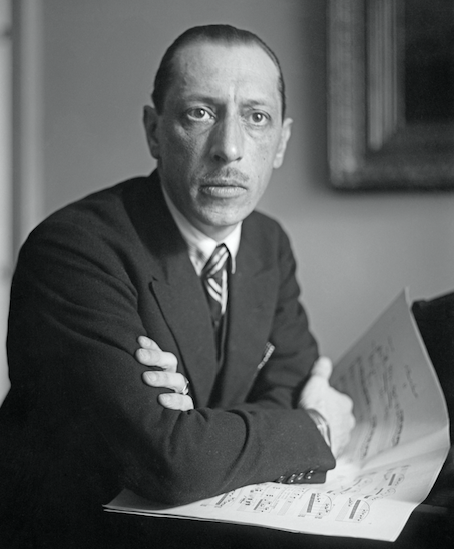
“He is a man on the eve of fame,” said Sergey Diaghilev, impresario of the famed Ballets Russes in Paris, during the rehearsals for Igor Stravinsky’s The Firebird.
In 1909 Stravinsky, viewed as a budding composer just emerging from the tutelage of Nikolay Rimsky-Korsakov, got what can be called his big break, thanks to the laziness of the composer Anatoly Lyadov. Early in the year, Diaghilev had written Lyadov: “I am sending you a proposal. I need a ballet and a Russian one, since there is no such thing. There is Russian opera, Russian dance, Russian rhythm – but no Russian ballet. And that is precisely what I need to perform in May of the coming year in the Paris Grand Opera and in the huge Royal Drury Lane Theater in London…The libretto is ready…It was dreamed up by us all collectively. It is The Firebird – a ballet in one act and perhaps two scenes.” When Diaghilev heard that after three months Lyadov had only progressed so far as buying music manuscript paper, he withdrew the commission and offered it to Aleksander Glazunov and Nikolay Tcherepnin, who both turned him down. In desperation, he turned to the unknown Stravinsky.
Stravinsky finished the score in May 1910, in time for the premiere on June 25. It was an instant success and has remained Stravinsky's most frequently performed work. Its romantic tone, lush orchestral colors, imaginative use of instruments and exciting rhythms outdid even Stravinsky’s teacher, the Russian master of orchestration. It required an immense orchestra and the first suite Stravinsky extracted from the ballet in 1911 strained symphony orchestras’ resources. He made two subsequent revisions, with modified orchestration, the final one in 1945.
The ballet, taking its plot from bits of numerous Russian folk tales, tells the story of the heroic Tsarevich Ivan who, while wandering in an enchanted forest, encounters the magic firebird as it picks golden fruit from a silver tree. He traps the bird but, as a token of goodwill, frees it. As a reward, the bird gives Ivan a flaming magic feather. At dawn the Tsarevich finds himself in a park near the castle of the evil magician Kashchei. Thirteen beautiful maidens, captives of Kashchei, come out of the castle to play in the garden but one of them in particular, the beautiful Tsarevna, captures Ivan’s heart. As the sun rises, the maidens have to return to their prison and the Tsarevna warns Ivan not to come near the castle lest he fall under the magician’s spell as well. In spite of the warning, the Tsarevich follows and opens the gate of the castle. With a huge crash Kashchei and his retinue of monsters erupts from the castle in a wild dance, whose drive and clashing harmonies foreshadow The Rite of Spring. With the help of the magic feather the Tsarevich calls the Firebird who overcomes Kashchei and tames the monsters by lulling them to sleep. In the end the captives are freed from the spell and Tsarevich Ivan and the Tsarevna are married in a grand ceremony culminating in an apotheosis of the Firebird.
Program notes by: Joseph & Elizabeth Kahn
Wordpros@mindspring.com / www.wordprosmusic.com
